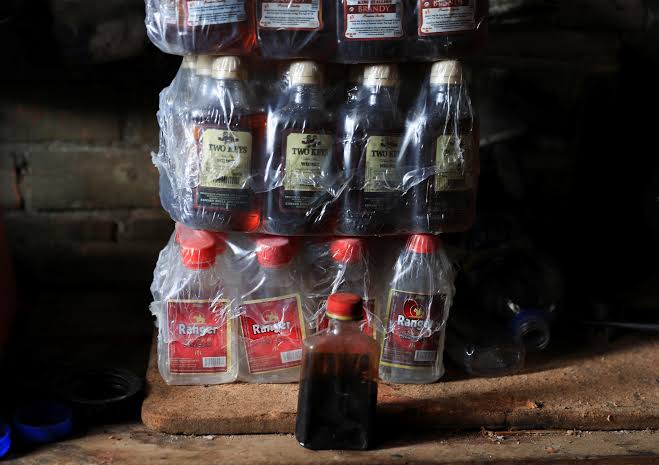
The Zimbabwean government has stepped up its fight against illegal alcohol by naming more illicit drinks being sold across the country, as part of a growing crackdown on unregulated brews that continue to threaten public health.
The Ministry of Health and Child Care, working alongside the police and regulatory agencies, announced a newly expanded list of banned beverages that fail to meet safety standards. These products, mostly home-brewed or imported without approval, have been linked to several health emergencies, including cases of poisoning, organ failure, and in some instances, death.
Officials revealed that some of the drinks on the list contain dangerously high levels of ethanol, methanol, and other industrial-grade chemicals not meant for human consumption. The government is now urging citizens to avoid these products and report any retailers found distributing them.
Street vendors, small bottle stores, and informal bars have been identified as key points of sale for the banned substances. Authorities say that while efforts have been made in the past to stop the distribution of unsafe alcohol, the new wave of products has made enforcement more urgent.
Law enforcement officers have already begun raiding hotspots in Harare, Bulawayo, and other major towns, confiscating large quantities of the prohibited drinks. Several vendors have been arrested, with the government warning that anyone found in possession of the illegal products will face severe penalties.
In addition to enforcement, the Ministry is planning a national awareness campaign to educate the public on the dangers of illicit alcohol and how to identify fake or unsafe beverages.
Health experts have praised the government’s initiative, but also warned that lasting change will require more than just bans. They called for stronger regulation of local alcohol production, better economic opportunities to reduce demand for cheap alternatives, and improved systems for product verification.
With the country already grappling with economic challenges, the rise in demand for low-cost alcohol has created a booming underground market. Officials say unless that demand is addressed, unsafe brews will continue to resurface under new names.

